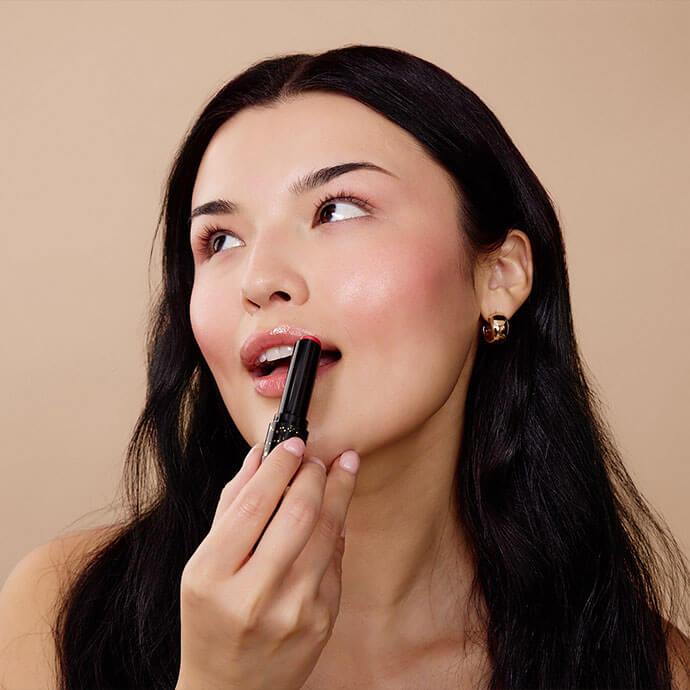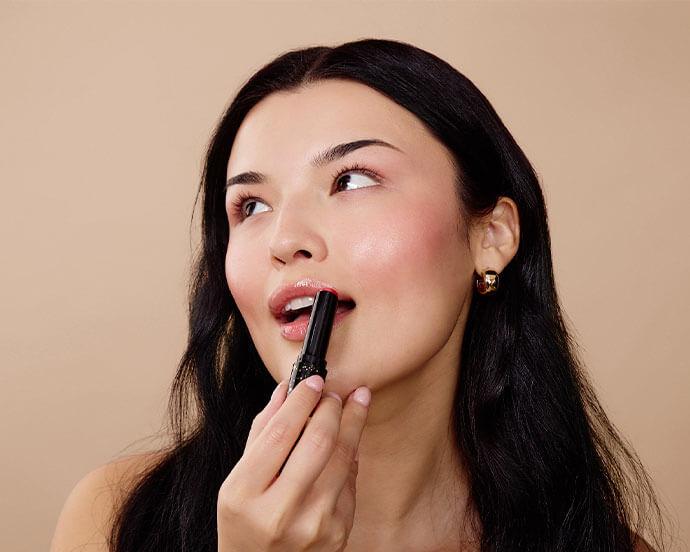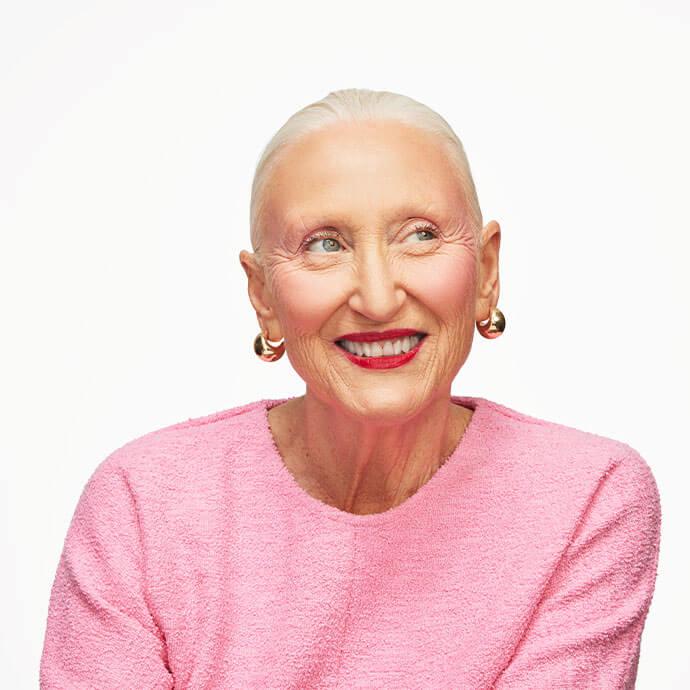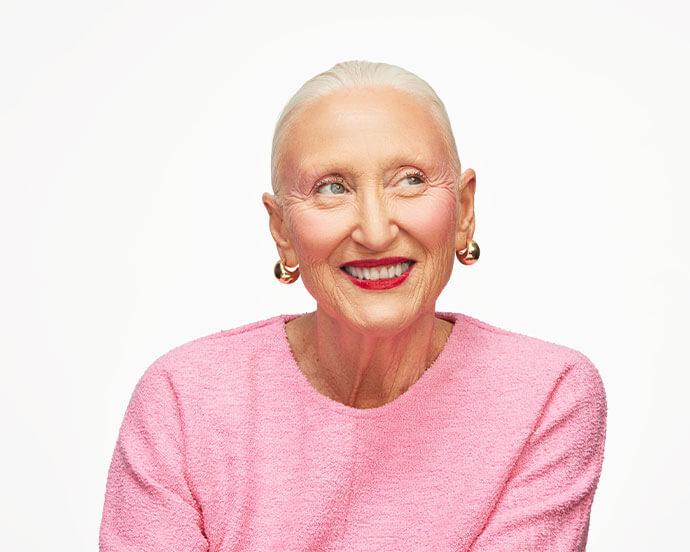Does Oily Skin Really Age Better? Our Skin Expert Weighs In



Chelsea Hall


In the ever-evolving realm of skincare, one question has lingered: Does oily skin hold the secret to defying the hands of time? For decades, we've been bombarded with beauty standards that laud the virtues of porcelain complexions and oil-free perfection. But recent studies and insights from skin experts have sparked a fascinating debate that might challenge everything we thought we knew. Welcome to the enthralling exploration of the age-old query: Does oily skin age better?
Traditionally, oily skin is associated with adolescence, breakouts, larger pores, and the relentless pursuit of a matte finish. However, emerging research has turned the spotlight onto a potential silver lining that oily skin offers—the prospect of a more youthful appearance as the years progress. Sebum, often vilified for its role in clogged pores and acne, could surprisingly play a pivotal role in the battle against aging.
To unravel this enigma, we turned to skin expert Tamila Deveny, who shares valuable insights into skincare and aging. From understanding the dynamic between sebum production and hydration to exploring the protective effects of its natural composition, we will unveil the hidden truths that could revolutionize our skincare routines.
It's about glam time you treated yourself.
Join IPSY

MEET THE EXPERT
Tamila Deveny is a NYC-based medical esthetician and cosmetic consultant who specializes in skin rejuvenating procedures.
Does Oily Skin Reign Supreme in Aging?
"Oily skin may have some benefits in terms of wrinkle prevention, but it doesn't guarantee better aging overall," says NYC-based medical esthetician and cosmetic consultant Tamila Deveny. While oily skin has its merits, the key to graceful aging is understanding that everyone's skin ages uniquely. Genetic predisposition, lifestyle choices, and sun exposure are pivotal determinants of aging.
"Sebum, a natural moisturizer, can keep the skin protected and aid in the faster healing of scars," explains Deveny. Additionally, the naturally occurring oils in oily skin contribute to its thickness, making it less susceptible to inevitable wrinkles and fine lines. Having a thicker dermis serves as a shield against the signs of aging, fostering a smoother and more youthful appearance.
Furthermore, the moisture retained by the oils in oily skin plays a crucial role in fending off wrinkles. "The oils in oily skin keep the skin more moist and smooth, which can help ward off wrinkles better than dry skin," says Deveny.
Tamila Deveny advises us to consider other factors like pigmentation, broken blood vessels, thinning of the skin, enlarged pores, and loss of firmness and tone. While oily skin offers advantages, the aging journey gracefully involves a holistic approach that encompasses various aspects of skincare and lifestyle.
In the quest for youthful radiance, embracing the diversity of our skin and its unique needs is vital. Oily skin may provide a few head starts in the aging race, but the ultimate winner is the one who nurtures their skin with care, makes informed choices, and appreciates the multifaceted nature of the aging process.
How Does Each Skin Type Age Differently?
When it comes to aging, our skin characteristics are not a one-size-fits-all approach. As time progresses, it's not just the passing years that leave their marks; it's the intricate interplay between genetics, lifestyle, and skincare. "Each skin type ages differently, and while there are common signs of aging like hyperpigmentation, loss of elasticity, and wrinkles, the way these manifest can vary depending on the skin type," explains Deveny.
Ahead are the factors to consider based on your type of skin:
Normal Skin: "As time passes, normal skin may lose some of its natural moisture, leading to increased dryness and the appearance of wrinkles," says Deveny. Nurturing hydration becomes pivotal in sustaining its youthful radiance.
Oily Skin: "Contrary to popular belief, oily skin doesn't necessarily age better; it just ages differently," says Deveny. Oily skin may sport a smoother texture due to continued sebum production, but it isn't exempt from wrinkles. The silver lining lies in sebum's protective fatty acids, offering a shield against UVA and UVB ray damage. However, sunscreen remains a non-negotiable companion to protect from premature aging and skin cancer.
Dry Skin: "With age, dry skin struggles to produce lipids as effectively as before, resulting in increased dryness and more pronounced wrinkles," Deveny emphasizes. The battle against aging for dry skin entails bolstering its lipid barrier and embracing rich moisturizers to keep the skin hydrated and protected.
Combination Skin: "Combination skin faces a mix of aging signs from both oily and dry skin types, making it essential to address each area's unique concerns," advises Deveny. Tailored skincare routines that cater to individual needs can ensure a harmonious aging process.
Sensitive Skin: The vulnerability of sensitive skin may amplify the impact of aging. "Sensitive skin may be more susceptible to irritation and inflammation, which could potentially worsen the appearance of aging signs," says Deveny. Sensitive skin requires extra TLC as it tends to show signs of aging through redness and irritation. Deveny emphasizes avoiding harsh treatments that could trigger sensitivity and cause damage to the skin barrier. Gentle exfoliation and a minimalistic skincare routine that includes soothing ingredients such as chamomile and hyaluronic acid is the best approach to a healthy and rejuvenated complexion.
What Other Factors Impact Skin Aging?
"Skin aging is influenced by a combination of intrinsic and extrinsic factors," says Deveny. “Intrinsic factors are related to genetics and the natural aging process, while environmental and lifestyle choices influence extrinsic factors."
One of the most commanding forces in this grand narrative is sun exposure. The sun's rays can cause harm to the skin's DNA and conjure up unwelcome wrinkles and age spots. This celestial tango with ultraviolet rays underscores the importance of protective measures like applying sunscreen.
However, the threat of premature aging extends beyond the sun's rays. Enter air pollution, another formidable antagonist. These external pollutants and free radicals can wreak havoc on our skin, infiltrating pores, igniting inflammation, and even damaging the skin cells that make our complexion radiant.
In this symphony of factors, smoking strikes a dissonant chord. It's no secret that smoking is a harbinger of skin aging, unleashing its destruction upon collagen and elastin fibers, the scaffolding of youthful skin. Tamila warns against this notorious habit in order to preserve our skin's vitality.
Regarding nutrition, "you are what you eat" takes on a new depth. "A healthy, well-balanced diet may help prevent damage that leads to premature skin aging," affirms Deveny. Opting for a healthy diet full of antioxidants is akin to a secret elixir, safeguarding our skin from damage that often fast-forwards the aging process.
Our daily choices, too, contribute to this ongoing narrative. Regular exercise, a meticulous skincare routine, and a conscious avoidance of harmful ingredients in our skincare products can help retain youthful skin that defies the years.
Last but not least, stress emerges as an unexpected antagonist in this saga. Tamila reveals the role of cortisol, the stress hormone, in orchestrating physiological changes that take a toll on our skin. Dehydration, the appearance of fine lines, roughness, and deep expression wrinkles stand as testimony to cortisol's influence.
To wrap it up, we've discovered that a myriad of factors play a role in how our skin ages. From the genes we inherit to the environmental forces that be, plus all the fun (or not-so-fun) choices we make along the way.
Liked this post? Share!
Related Stories


Skin
Skinimalism Is the Ultimate Stripped-Back Skincare Trend
Published on Jan 22, 2026 • 6 min read


Skin
Spring Is Coming—Is Your Skincare Ready?
Published on Jan 15, 2026 • 4 min read


Skin
The Hydration Sandwich Trend Will Save Your Dry Lips This Winter
Published on Jan 13, 2026 • 4 min read


Skin
What Is the Skin Barrier & Why Is Everyone Talking About It?
Published on Jan 12, 2026 • 6 min read


Skin
The New Year Is the Perfect Time to Get Ahead of Inflammaging
Published on Dec 15, 2025 • 8 min read


Skin
How to Adjust Your Skincare Routine for Mature Skin in the Winter
Published on Dec 4, 2025 • 7 min read


Skin
10 Thanksgiving Foods That Will Have Your Skin Coming Back for Seconds
Published on Oct 15, 2025 • 7 min read


Skin
Skin Texture 101: Your Guide to the Types of Skin Texture and How to Care for Them
Published on Oct 8, 2025 • 14 min read


Beauty Picked Just for You
Get 5 products worth up to $70
Plus exclusive access to epic deals up to 80% off
Starting at just $14/month. Cancel anytime.